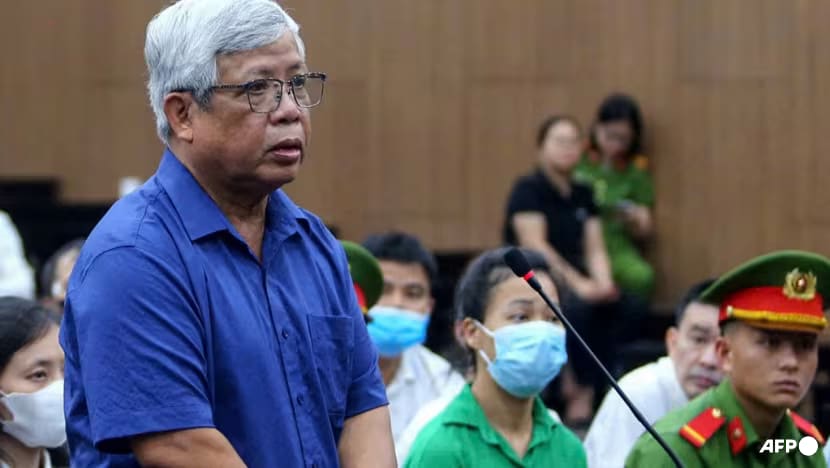Vietnam jails 23 people over rare earths exploitation
HANOI: A Vietnamese court on Wednesday (May 21) jailed 23 officials and business people over the illegal exploitation and export of rare earths.
The trial comes after the US Geological Survey (USGS) this year significantly revised down its estimate of rare earth deposits in Vietnam, which it once considered the world's second largest.
The nine-day trial in Hanoi saw verdicts handed down to 27 defendants, including former Deputy Minister of Natural Resources and Environment Nguyen Linh Ngoc, who was given three years in jail for "violating state regulations causing wastefulness".
Others were given a range of prison sentences – with 16 years being the highest – for a number of offences, including violation of regulations on natural resources exploitation and causing environmental pollution.
Four people were given suspended sentences.
According to the court, the case concerning the exploitation, trade and export of mineral resources was "especially serious".
The court said that a firm called Thai Duong Company was unlawfully granted a mining licence for rare earth exploitation in Yen Phu mine in northern mountainous Yen Bai province between 2019 and 2023.
Defendants involved – including environment officials as well as chief accountants and executives at various companies – sold the rare earths and iron ore from the mine for close to US$30 million, much of it to China.

USGS slashed this year its estimate of Vietnam's rare earth reserves from an estimated 22 million tonnes to 3.5 million tonnes, threatening its ambitions to compete with Beijing in a sector crucial to high-tech devices.
The revision meant the country dropped from the world's second largest reserve holder to the sixth, behind China, Brazil, India, Australia and Russia.
USGS describes mineral reserves data as "dynamic".
Reserves may be reduced as ore is mined or the feasibility of extraction diminishes, or they may continue to increase as additional deposits are developed, USGS says.
Rare earths are a group of 17 heavy metals that are abundant in the Earth's crust across the globe.
But mining the metals requires heavy chemical use that results in huge amounts of toxic waste and has caused several environmental disasters, making many countries wary of shouldering the heavy financial costs for production.
Each of the rare earths is used in industry and found in a variety of everyday and high-tech devices, from light bulbs to guided missiles.
免责声明:投资有风险,本文并非投资建议,以上内容不应被视为任何金融产品的购买或出售要约、建议或邀请,作者或其他用户的任何相关讨论、评论或帖子也不应被视为此类内容。本文仅供一般参考,不考虑您的个人投资目标、财务状况或需求。TTM对信息的准确性和完整性不承担任何责任或保证,投资者应自行研究并在投资前寻求专业建议。
热议股票
- 1
- 2
- 3
- 4
- 5
- 6
- 7
- 8
- 9
- 10